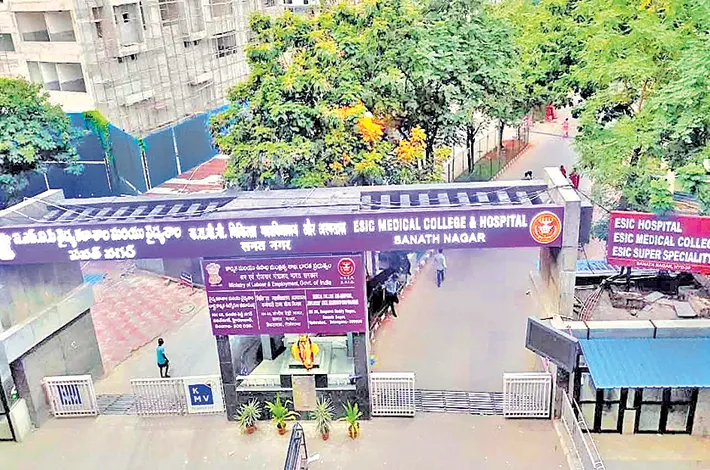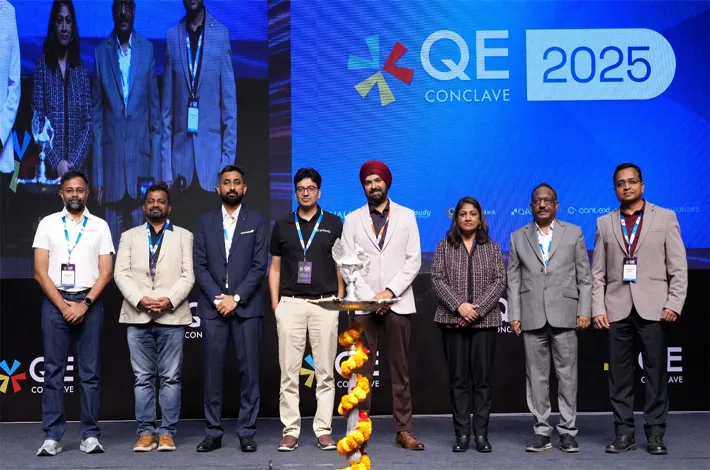Endless Struggle for Insurance
29-11-2025 12:00:00 AM

Calls grow to raise ESI salary cap expand hospitals
■ Raise Salary Threshold: Extend ESI coverage from Rs 21,000 to Rs 30,000 monthly wage limit to include thousands more low-wage workers like security guards and housekeeping staff amid rising costs.
■ Cashless Emergency Care: Mandate private hospitals to provide upfront treatment in accidents without cash demands, with ESI reimbursements, to prevent life-threatening delays.
■ Expand 24/7 Facilities: Increase round-the-clock ESI hospitals beyond Erragadda and Nacharam to industrial hubs and secondary towns, addressing relocation impacts and attendant amenities shortages.
metro india news I hyderabad
The Employees' State Insurance (ESI) scheme, meant to provide social security to workers, is facing growing criticism over its inadequate services. In Telangana, laborers and low-wage employees in factories, small-scale MSMEs, and companies rely on ESI coverage based on their salaries. However, long-standing demands for key improvements remain unaddressed, leaving thousands without reliable healthcare support.
Workers are urging immediate action on three major issues: raising the salary eligibility threshold, enabling cashless emergency treatment in private hospitals, and expanding 24/7 ESI facilities. These gaps are causing frustration, especially for vulnerable groups like security guards, watchmen, housekeeping staff, and multitasking service workers.
Under the ESI rules governed by the Union Labour Ministry, coverage applies only to workers earning up to Rs 21,000 per month. Salaries beyond this limit exclude them from the scheme, despite annual inflation adjustments, festival bonuses like Dasara and Diwali, and performance-based perks that often push earnings higher. For years, unions and workers have demanded an increase to Rs 30,000 to account for rising living costs.
This change would extend benefits to thousands more across the state, particularly informal sector employees who currently fall outside the net. Advocates argue that government and MPs must prioritize this to ensure broader access to ESI's medical and financial safeguards.
In emergencies, timely treatment is critical—but ESI's infrastructure falls short. Currently, only two ESI hospitals in the state—located in Erragadda and Nacharam—operate 24/7. The rest are mere dispensaries with limited hours. If an accident occurs in remote industrial areas like Shankarpalli or Patancheru, workers are rushed to nearby private hospitals. However, these facilities often demand upfront cash payments, citing a lack of tie-ups with ESI or other excuses.
In 99% of cases, families, the injured worker, or their employer must foot the bill out-of-pocket. This is especially problematic at night or when factory owners are unavailable, forcing desperate situations where lives hang in the balance. Workers lament that without owners' intervention, treatment becomes a gamble.
Ideally, private hospitals should provide immediate stabilization and transfer patients via ambulance to an ESI facility, with ESI reimbursing costs later. But this protocol is rarely followed, making emergency care dependent on ad-hoc mercy rather than systemic support.
The scarcity of round-the-clock ESI hospitals exacerbates these risks. Beneficiaries worry that transporting patients to Erragadda or Nacharam in a crisis could prove fatal due to distance and delays. There's an urgent need to increase such facilities, especially within the Greater Hyderabad Municipal Corporation (GHMC) limits.
Workers demand new 24/7 centers in industrial hubs like Patancheru, Choutuppal, Tumkunta, and Shadnagar to serve local factories and companies. Beyond the capital, tier-2 cities and towns such as Warangal, Karimnagar, Nizamabad, Nalgonda, Adilabad, and Mahbubnagar also require dedicated ESI hospitals to reach underserved populations.
A recent state government decision to shift factories from inside the Outer Ring Road (ORR) to areas within the Regional Ring Road (RRR) has raised fresh concerns. While the plan aims to decongest Hyderabad, it ignores how this affects thousands of workers caught in the ORR-RRR corridor. With ESI's main 24/7 hospitals still in the city center, emergency access for these relocated employees would become even more challenging. To make ESI truly effective, new hospitals must be established in these transitional zones, ensuring equitable services regardless of industrial shifts.
Adding to these woes, ESI hospitals often lack basic facilities for patient attendants, such as beds for resting. Workers call for simple improvements like dedicated sleeping areas to support families during long hospital stays, making the system more humane. As demands grow louder, the hope is that policymakers will act swiftly to restore faith in ESI and safeguard the health of Telangana's workforce.








